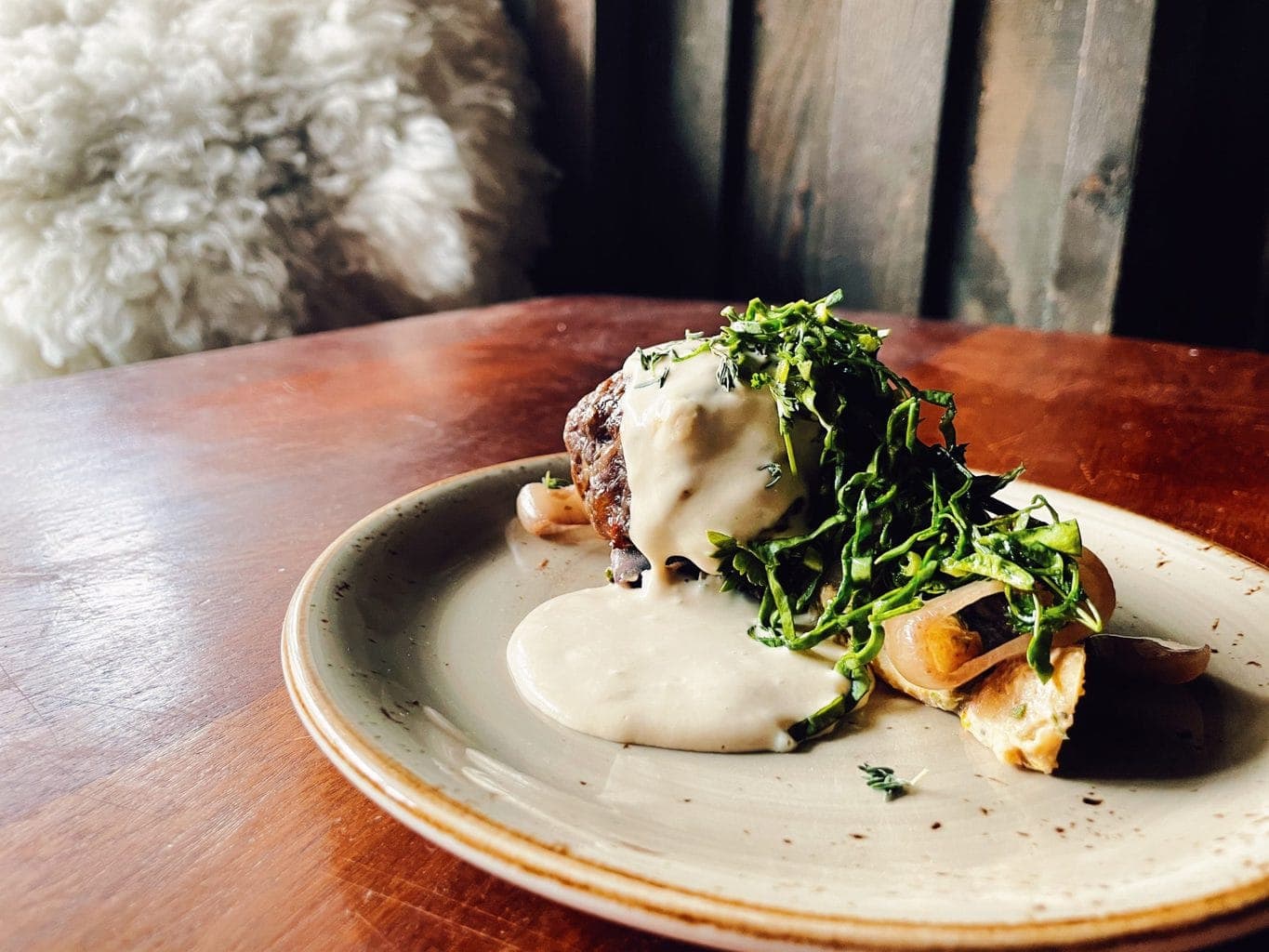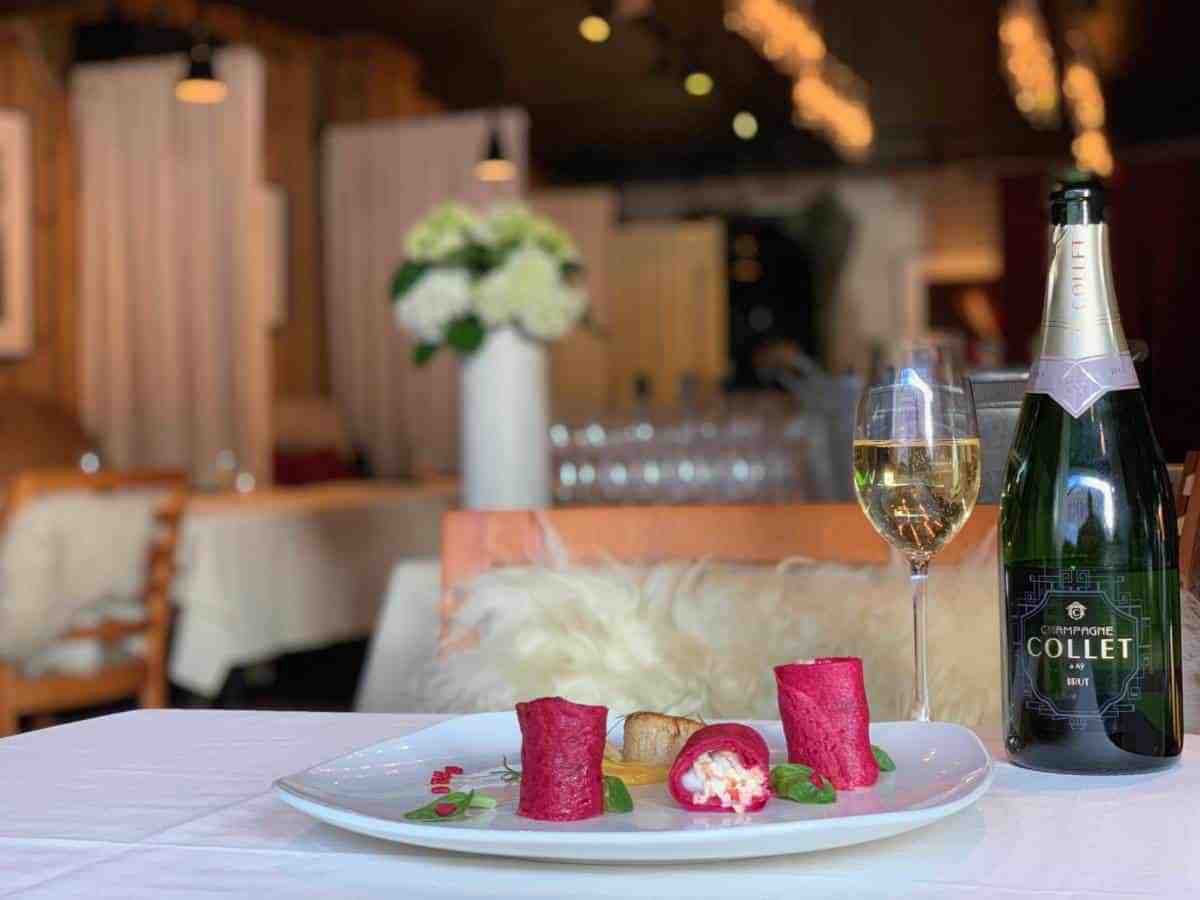
Love’s holiday is nearly here, and we are combining both restaurants for one giant celebration of all of your big hearts.
Join us for seatings at 5, 7 and 9 o’clock for three courses of extravagance, plus complimentary Champagne.
The meal involves optional wine pairings and supplements as well. $110 per person. While the meal, service and experience is identical in both restaurants, please make reservations at your preferred location (note: the two restaurants are physically connected to each other).
Visit the websites, blackcatboulder.com or brambleandhare.com to secure seating, or call Black Cat at 303-444-5500, or Bramble & Hare at 303-444-9110.
It’s a treasured tradition at our restaurants. We look forward to making it special for you.
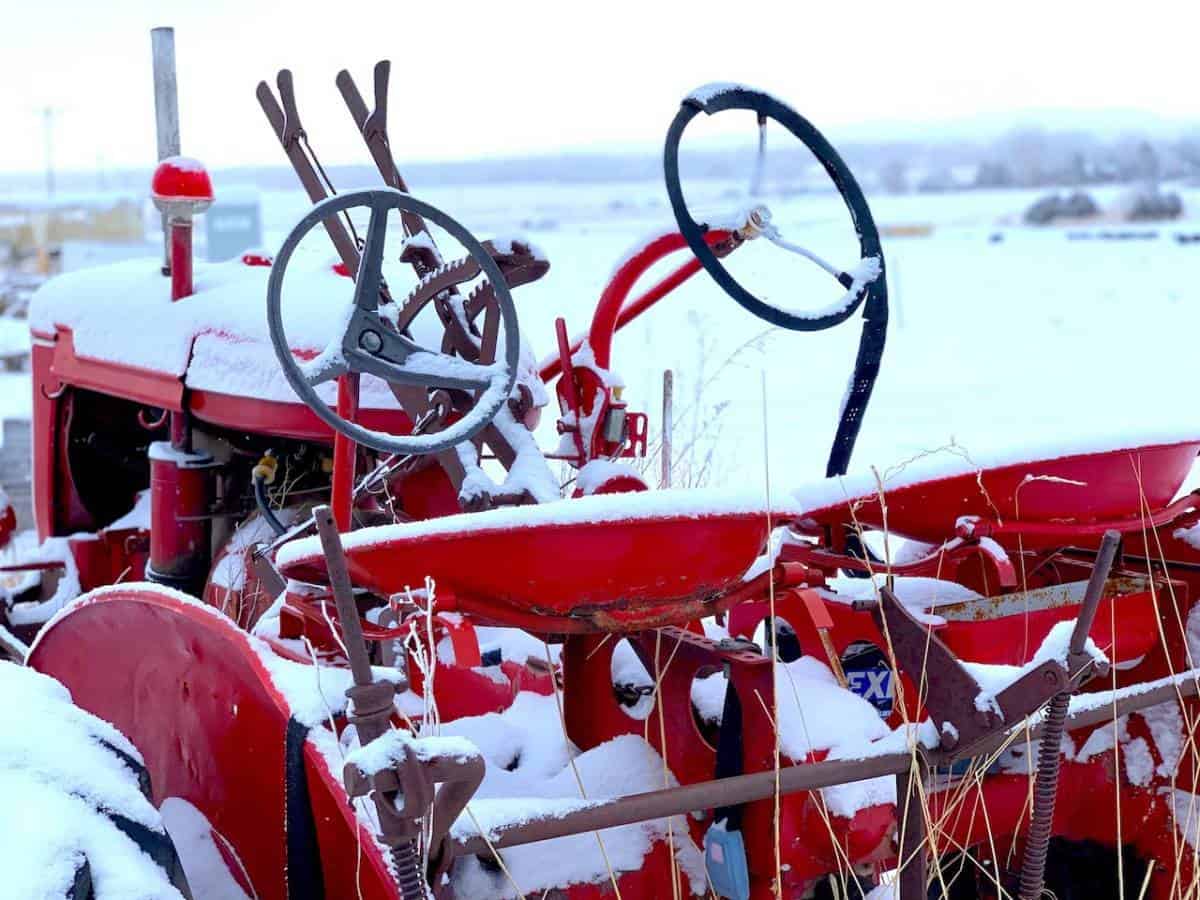
Cold Snaps Benefit Soil, Crops and Livestock
We didn’t get Polar Vortexed in Colorado, like they did in the Upper Midwest. But we shivered into Subzero Land for a spell earlier this month, and while it didn’t exactly turn the farming part of our lives into a knee-slapping jolly time we are not complaining.
Most farmers welcome deep freezes, as long as they take place in the depths of winter. When temperatures dive far enough, they kill many of the pests that burrowed underground for warmth during the cold season. As organic and biodynamic farmers, we embrace all of the natural help we can get to battle the many bugs that looooove our diversity of plants. So thanks, -11°.
In addition, the freeze-thaw cycle can help soften soils, which is helpful in the spring when we start planting again.
On the other hand, if the temperatures are too frigid the cold can harm the winter wheat — and we do have the grain ready to spring up once things begin to warm. We think the deep freeze wasn’t forbidding enough, however, to hobble our crop.
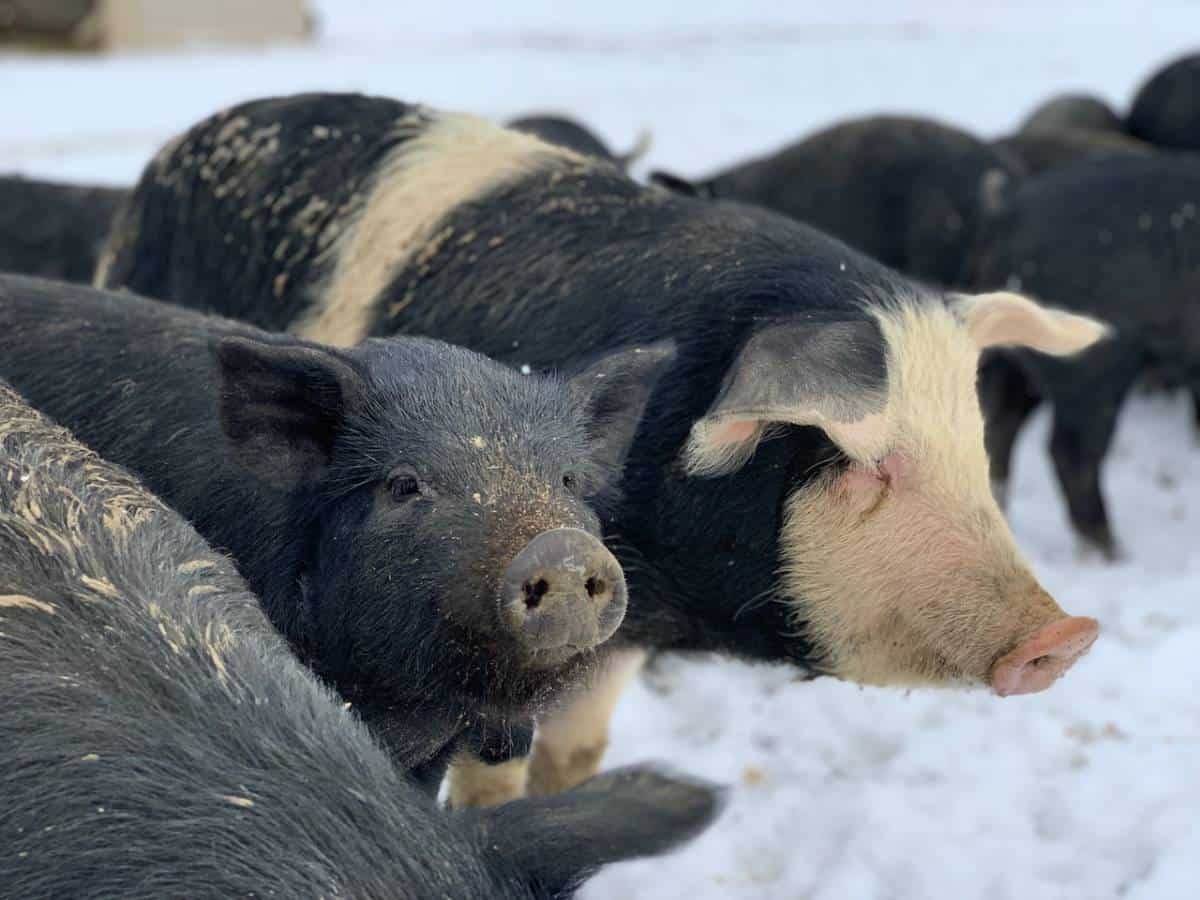
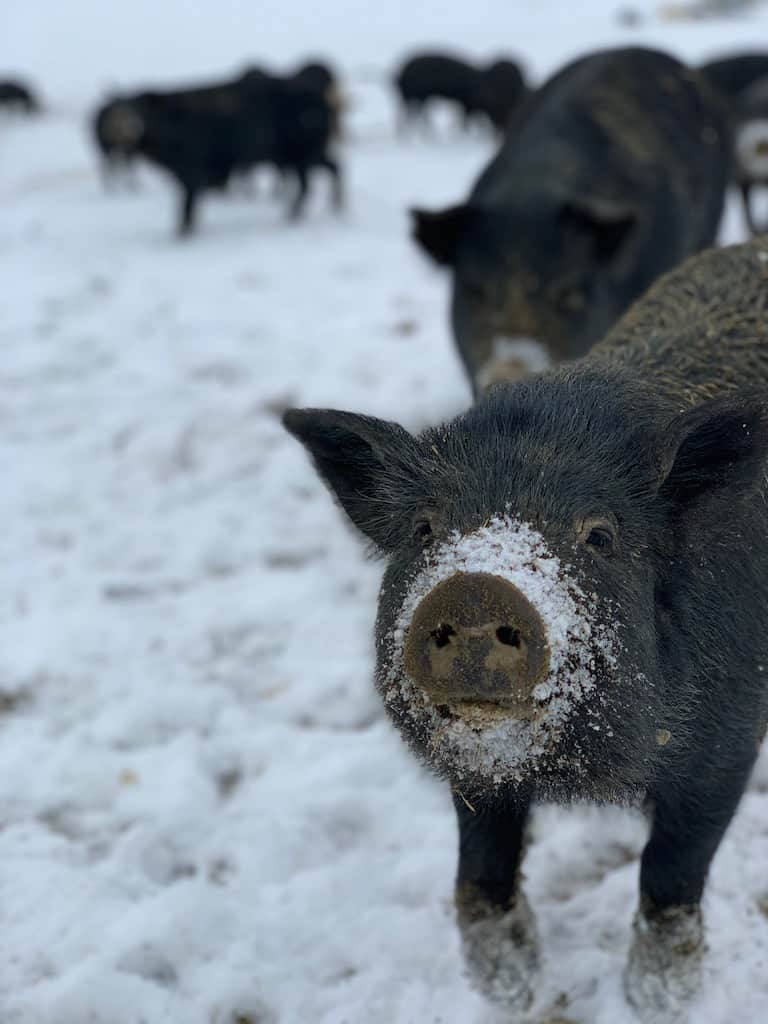
Cold Compels Livestock to Frolic with Abandon. Winter — Their Favorite Season
The fields can benefit from Arctic teases. And those cold blasts invigorate the livestock as well. Our heritage pigs, sheep and Akbash guard dogs are bred to withstand, and even prefer, cold weather. These animals’ comfort in the depths of winter played a big role in our decision to incorporate them into our farm. In short, they are built to endure Mother Nature’s extremes.
It’s during Boulder’s average winter days and nights, when temperatures reach the mid-40s in the afternoons and sink to the 20s at night, that our animals are at their friskiest. That’s when they play with abandon. It’s only during the coldest spells that they might snuggle together for longer spells in hay (all of our shelters are filled with hay). During summer’s most sweltering afternoons, they often lie down in tall grasses, or find the many sources of water that dot our farm.
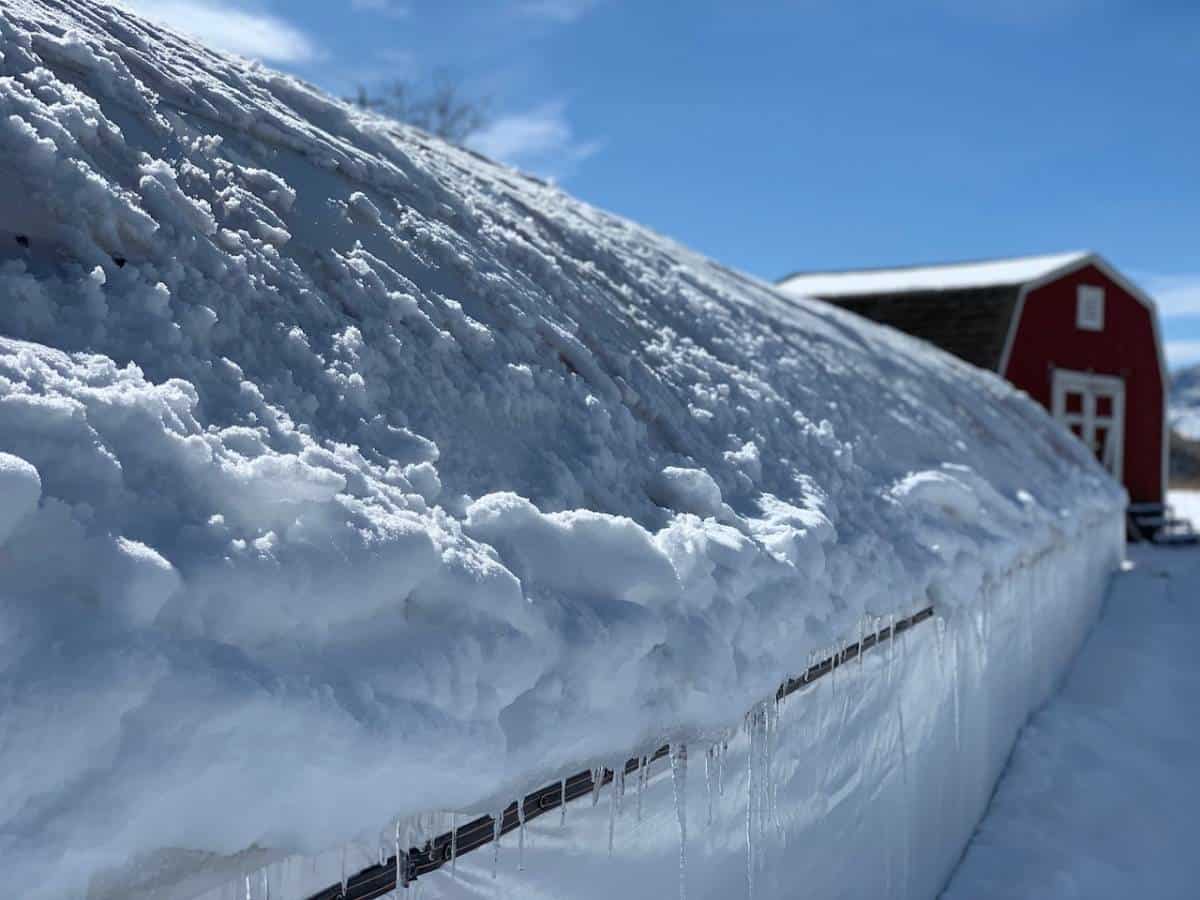
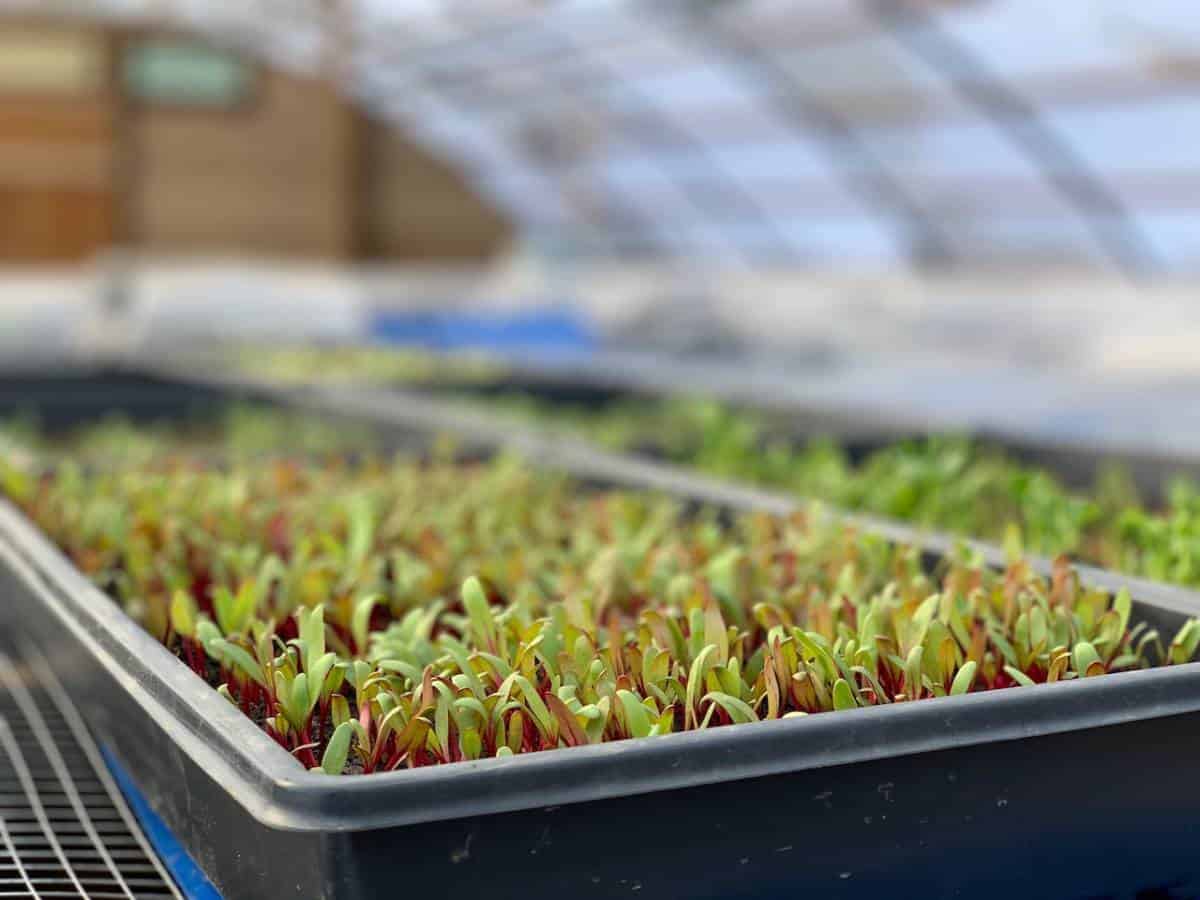
The New Greenhouse Offers Bounty of New Opportunity for Farm
Those temperatures the animals love — 20s to 40s — are too cold for seeds to germinate or seedlings to root and thrive. We have relied upon row cover to get us through the winter in years past, and it works swimmingly. It protects the roots of greens just enough to permit them life during the winter. When the soil warms, they rise fast.
But last year we decided to add a large, sturdy greenhouse to our operation, and as of last month it’s up and running. The greenhouse will let us create our own starts (seedlings we plant in the soil once it’s warm enough outside) for a range of plants, including tomatoes, peppers, leeks, eggplants and cucumbers.
It will lengthen our season in general, and even provide us the tools to experiment with things like hothouse tomatoes during the winter.
For now, tomatoes on plates at the restaurants between roughly mid-October and sometime in July are tomatoes we grew and then preserved: freezing, pickling, dehydrating, turning to sauce. Would we appreciate the option of offering homegrown tomatoes in April? Why, yes indeed.
But we won’t buy them — we are farmers. If we can cultivate ripe tomatoes in April in our greenhouse, however, we’re in. First, we’ve got to experiment and make sure we like ‘em. As a combination of chefs and farmers, flavor comes first for all things Black Cat.
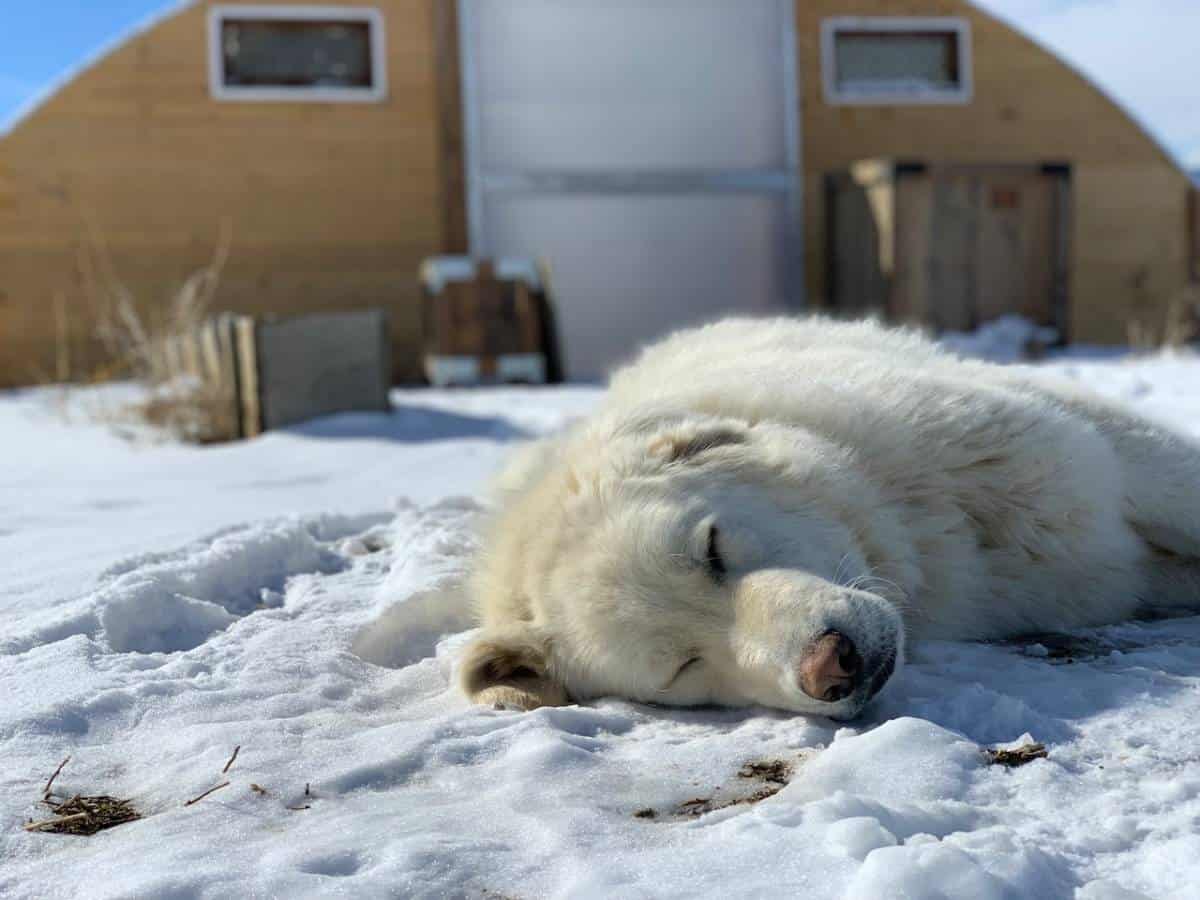
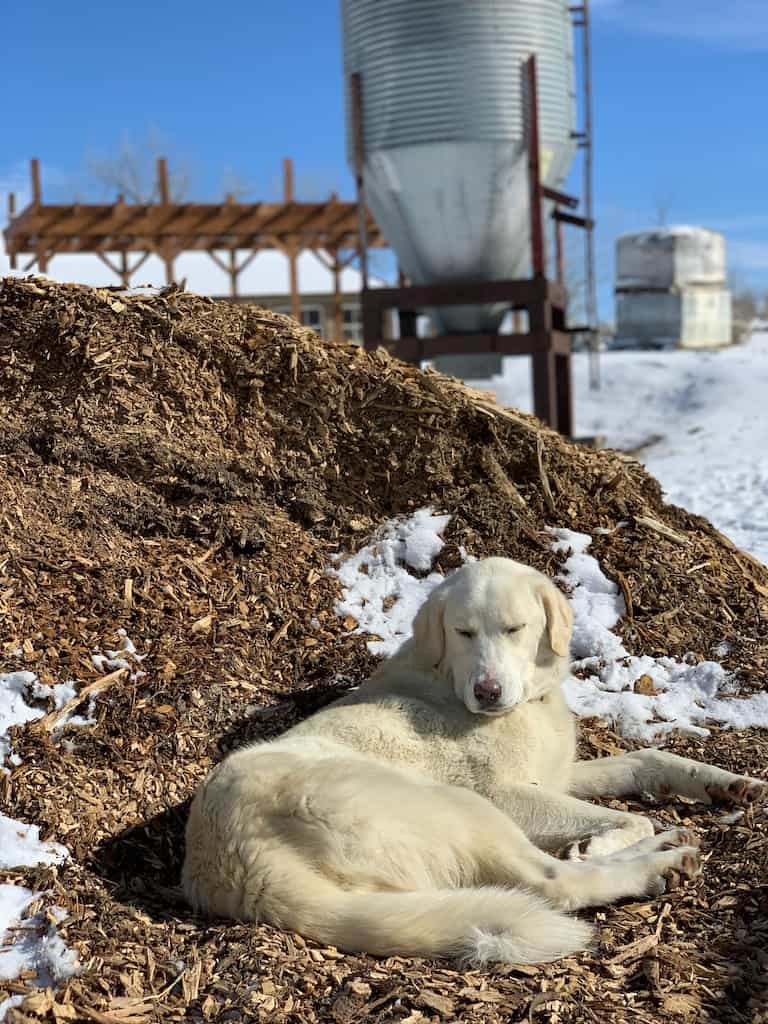
Our Akbash guard dogs are waaaaay into the environs surroundiing the greenhouse. Check out Luna, sleeping in the sun-warmed wood chips, and Theo (short for Thelonious Monk), taking a nap in front of the greenhouse. Good doggies!
